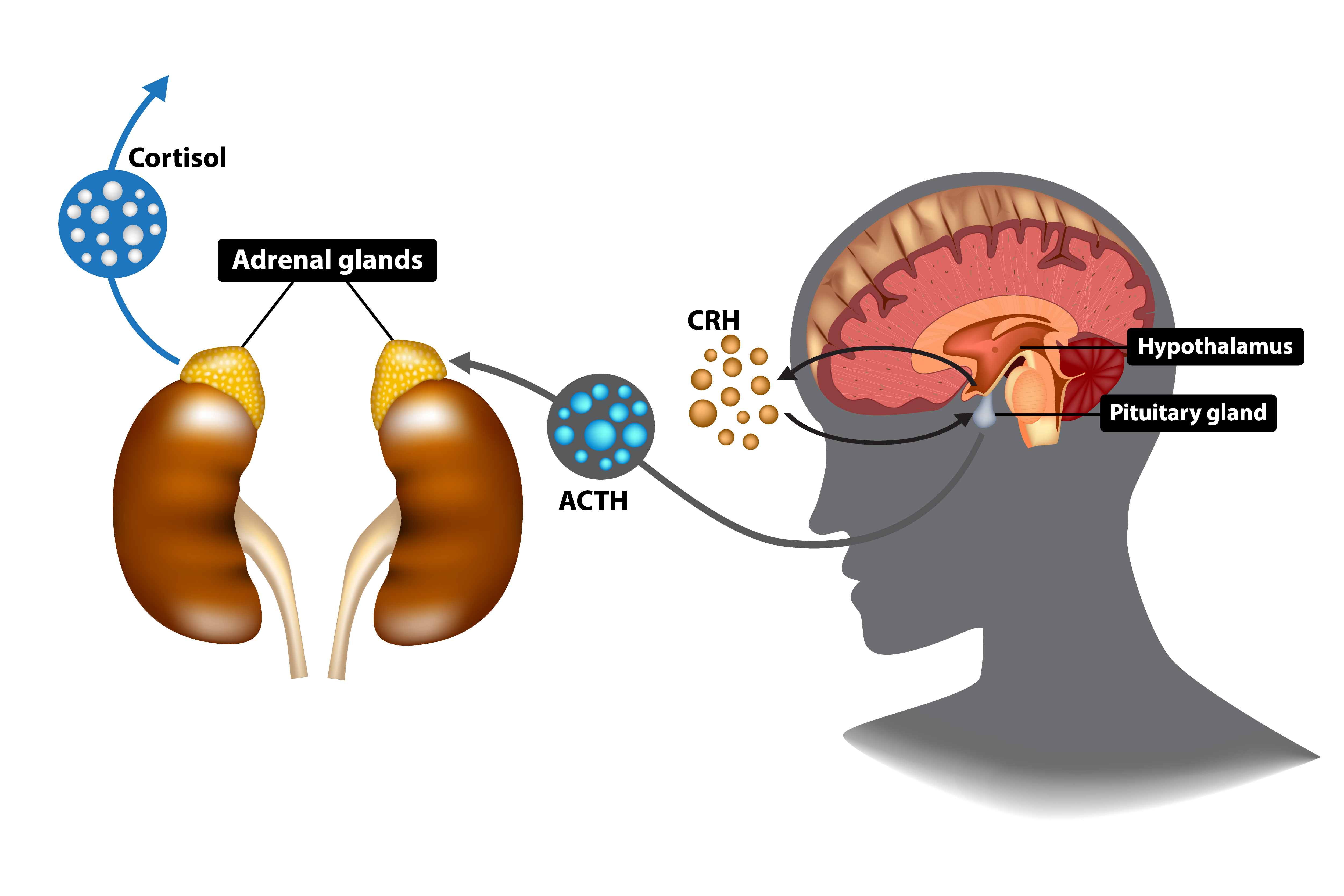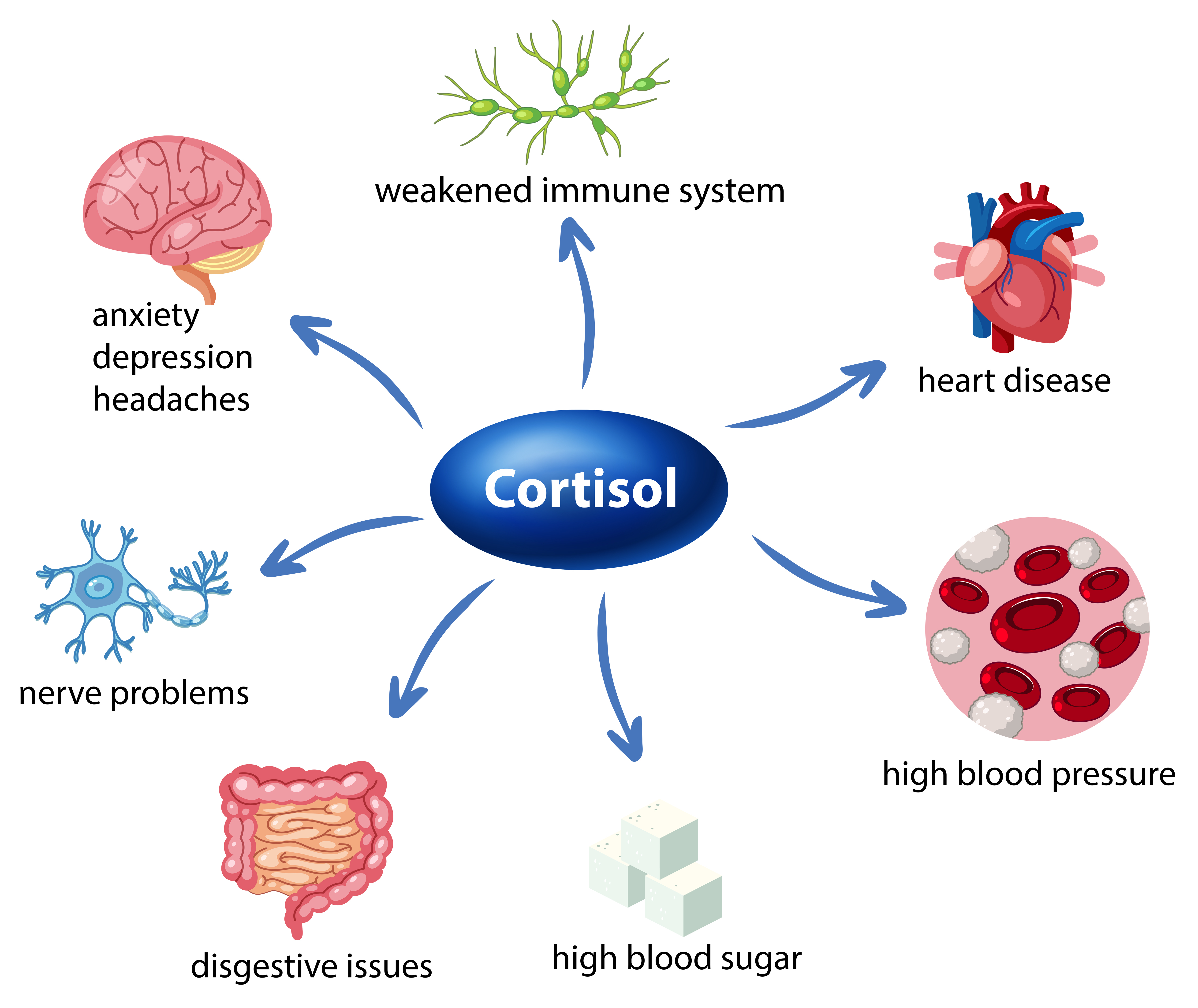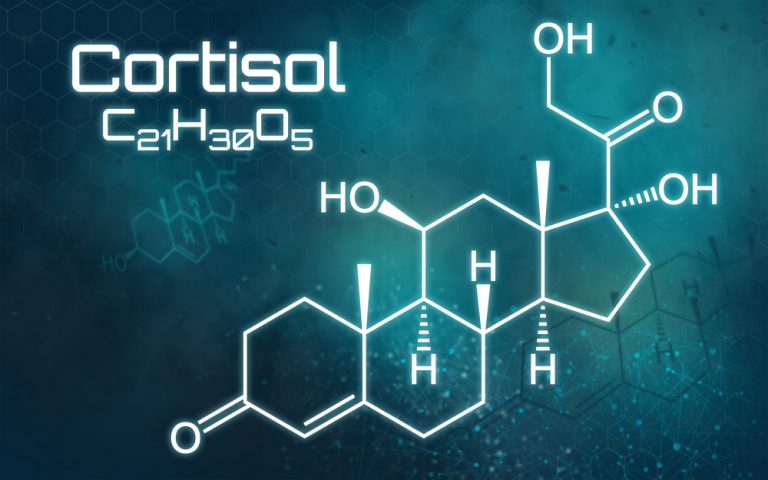This day’s, people seem to be more interested with cortisol, which is an adrenal steroid hormone. That means that like testosterone and estrogen, as well as activated vitamin D, it’s produced from a base of cholesterol. Cortisol’s primary function is to combat stress imposed on the body, whether physical or psychological in origin.
What's the ticket with cortisol?
This day’s, people seem to be more interested in cortisol, which is an adrenal steroid hormone. That means that like testosterone and estrogen, as well as activated vitamin D, it’s produced from a base of cholesterol. Cortisol’s primary function is to combat stress imposed on the body, whether physical or psychological in origin.
The brain perceives stress and initiates a cascade that starts in the hypothalamus, spreads to the pituitary gland and then sends signals by way of a hormone called ACTH from the pituitary gland to the adrenal cortex, where cortisol is produced. Although cortisol has a bad reputation, you’d die without it. Some people suffer from a lack of cortisol known as Addison’s disease. Without supplemental cortisol, patients with the disease wouldn’t survive even the least amount of stress.
Cortisol’s the body’s primary catabolic hormone. It works with myostatin, another protein, to break down muscle. Even that seemingly negative effect of cortisol, however, has been misconstrued. The reason cortisol breaks down muscle is to acquire amino acids, which are sent to the liver, then converted into glucose in a process called gluconeogenesis. The glucose supplies the energy to deal with stress. So cortisol helps you survive stressful events. That’s small solace, of course, to the bodybuilder or athlete who loses muscle and strength when cortisol release gets a little too dominant.

Cortisol has an inverse relationship with anabolic hormones in the body
When cortisol counts are high, insulin, growth hormone and testosterone are often low. That’s another way that elevated cortisol can lead to muscle loss. Anabolic-steroid drugs produce increases in muscle size and strength because they oppose cortisol in muscle. That also explains how those who use steroids can indulge in overtraining with apparent impunity.
Various substances and practices lead to cortisol elevations in the body. For example, caffeine, found in most sports drinks, fat-loss supplements and most commonly in coffee, can boost cortisol. Not getting sufficient sleep not only increases cortisol but also lowers testosterone and growth hormone, a perfect recipe for muscle loss. Overtraining, especially aerobics, can boost cortisol faster than you can imagine. Even having too much subcutaneous fat, which is the fat just under the skin, raises cortisol via an enzyme called 11-beta HSD1 that converts inactive cortisone into active cortisol.
Other substances can lower cortisol, including the mineral magnesium, which blunts its potential rise during excessive aerobic exercise. Omega-3 fatty acids found in fish oil also lower elevated cortisol, especially that induced by mental depression. One fun way to lower cortisol is by having sex; in that sense, sexual activity is anabolic.
Meanwhile, phosphatidylserine has been shown to lower cortisol about 30 per cent in exercising subjects. Vitamin C also helps in that regard, as does black tea.
From a drug standpoint, some bodybuilders have used aminoglutethimide, with popular trade names such as Cytadren and Orimeten. The drug inhibits an enzyme that converts cholesterol into steroids, decreasing all steroid hormones – not just cortisol but also estrogen and testosterone. Bodybuilders who’ve used higher doses of the drug have reported extreme joint pain, which occurs because it blocks the anti-inflammatory effects of cortisol on joints and muscle.

How does food affect cortisol?
Animal-based studies show that high-protein diets reduce elevated cortisol, and a study of obese women demonstrated that eating carbohydrates helped increase it. Other studies show that when subjects drink a carbohydrate formula during training, cortisol release is repressed. Meanwhile, a study of obese men found that a very low-carbohydrate diet led to increased cortisol, while a moderate-carb diet had no effect. The low-carb diet apparently stimulated 11 beta-HSD1 to produce active cortisol. The low-carb diet also encouraged the activation of cortisol in the liver.
Another study examined whether dieting itself is a stressor that can elevate cortisol. This study involved 120 women who ate about 1200 calories a day. Some of them were told to monitor their calorie intake carefully, which caused a significant level of mental stress. Merely restricting their calories, however, was enough to significantly elevate cortisol. Because one function of cortisol is to marshal energy sources, when a lack of energy is perceived – as occurs during a restrictive, low-calorie diet – the body responds by pumping out more cortisol.
Getting to the conclusion
Since excess body fat itself causes elevated cortisol, it seems that labelling dieting ineffective because it increases stress misses the point: Having too much body fat is more damaging to long-term health than limited dieting is. Some of the ways of countering cortisol rise – most notably is eating more protein. Perhaps another way to reduce the mental stress of dieting is to engage in activity that relaxes you, such as meditation, reading, massage and so on. Getting enough sleep will also help.
Another way to minimize the possible catabolic effects of dieting is to lose weight slowly and avoid crash dieting. I suggest that limiting your weight loss to 0.5 kilograms of weight per week and eating a higher-protein diet will prevent the catabolic effects of dieting for most people.






